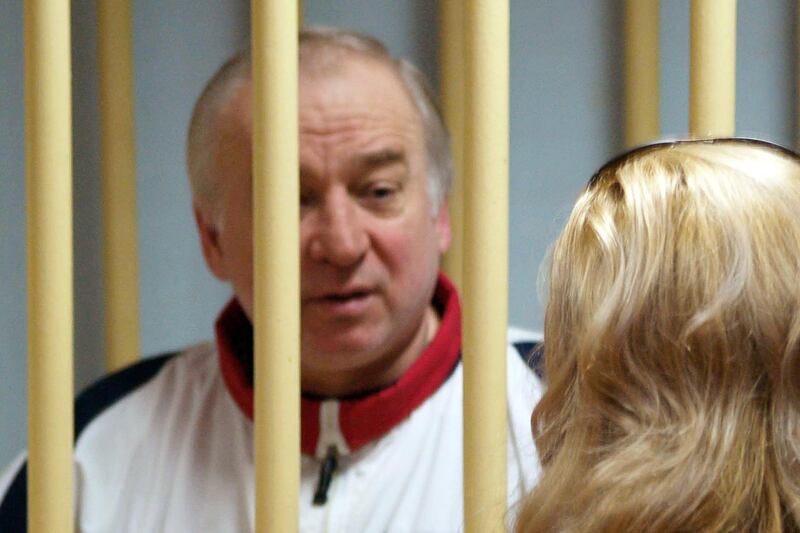The UK government did not learn lessons from the poisoning of Alexander Litvinenko in 2006, his widow said on Sunday as investigations continue into the use of a nerve agent against another former Russian intelligence agent.
Litvinenko is widely believed to have been killed with radioactive polonium by Russian agents in London. In a television interview on Sunday, Marina Litvinenko made public a letter from then home secretary Theresa May, now the prime minister, promising that the UK would do everything in its power to stop such an incident happening again.
However, she said, "It has happened again. It means something was not done."
Mrs Litvinenko appeared on TV exactly a week after the attempted murder of former Russian intelligence agent Sergei Skripal, 66, and his daughter Yulia, 33, in Salisbury, England.
“Lessons haven’t been learned," she said.
She also took aim at Russian money in British politics. "When you allow people with money to come to your country to make a business, you need to make sure where the money has come from."
The interview came as Public Health England warned hundreds of people to wash their clothing after traces of nerve agent were discovered at a restaurant and a pub visited by Mr Skripal and his daughter last Sunday.
The two were later found slumped on a park bench and remain in critical condition.
The statement, aimed at up to 500 people, read: “While there is no immediate health risk to anyone who may have been in either of these locations, it is possible, but unlikely, that any of the substance which has come into contact with clothing or belongings could still be present in minute amounts and therefore contaminate your skin. Over time, repeated skin contact with contaminated items may pose a small risk to health.”
__________
Read more:
[ British government urged to expel Russians over poisoning of former spy ]
[ Russian spy poisoning: nerve agent traces found at pizza restaurant – report ]
__________
Police said they had identified more than 240 witnesses, and large parts of Salisbury remain cordoned off as the investigation continues. On Friday, almost 200 military personnel were deployed to the city in order assist in the investigation.
Meanwhile, in Westminster, a war of words is mounting over suspected Russian involvement in the poisoning. Shadow chancellor John McDonnell announced he was no longer going to appear on the Russian state TV station Russia Today, and urged his Labour party colleagues to do the same. He said the Kremlin-backed channel's coverage "goes beyond objective journalism" and a boycott was "right".
Chancellor Philip Hammond suggested that a deal might be in the works with Labour to levy fresh sanctions against Russia in the wake of the poisoning. However, he rejected Mrs Litvinenko's suggestion that the Conservative Party give back more than £800,000 (Dh4 million) in funding received from Russian oligarchs, insisting there were very strict rules on political donations in the UK.
“There are people in this country who are British citizens who are of Russian origin. I don’t think we should taint them, or should tar them with Putin’s brush,” he said.
On Tuesday, Foreign Secretary Boris Johnson suggested England could pull out of the World Cup scheduled to be held in Russia later this year.







